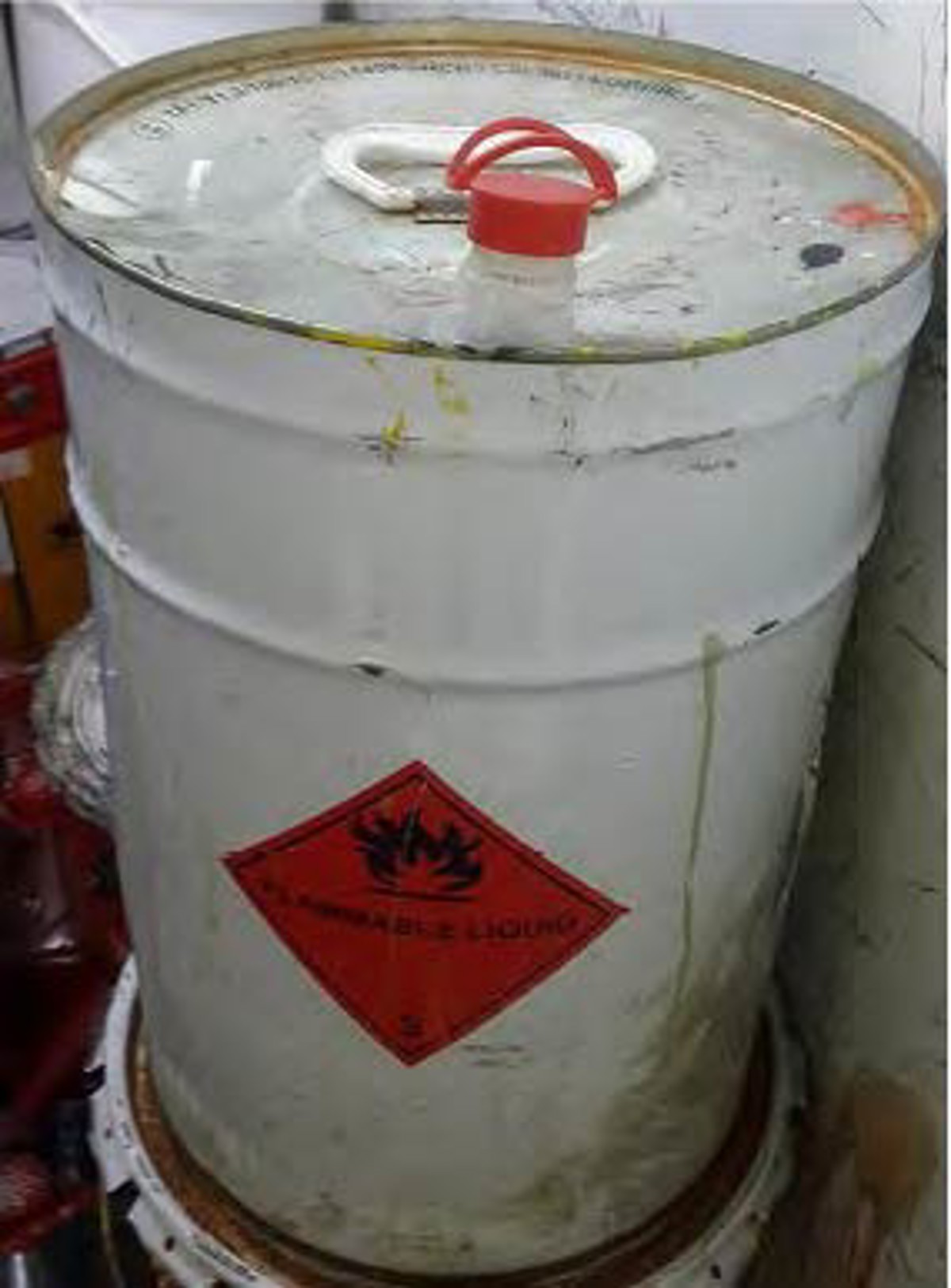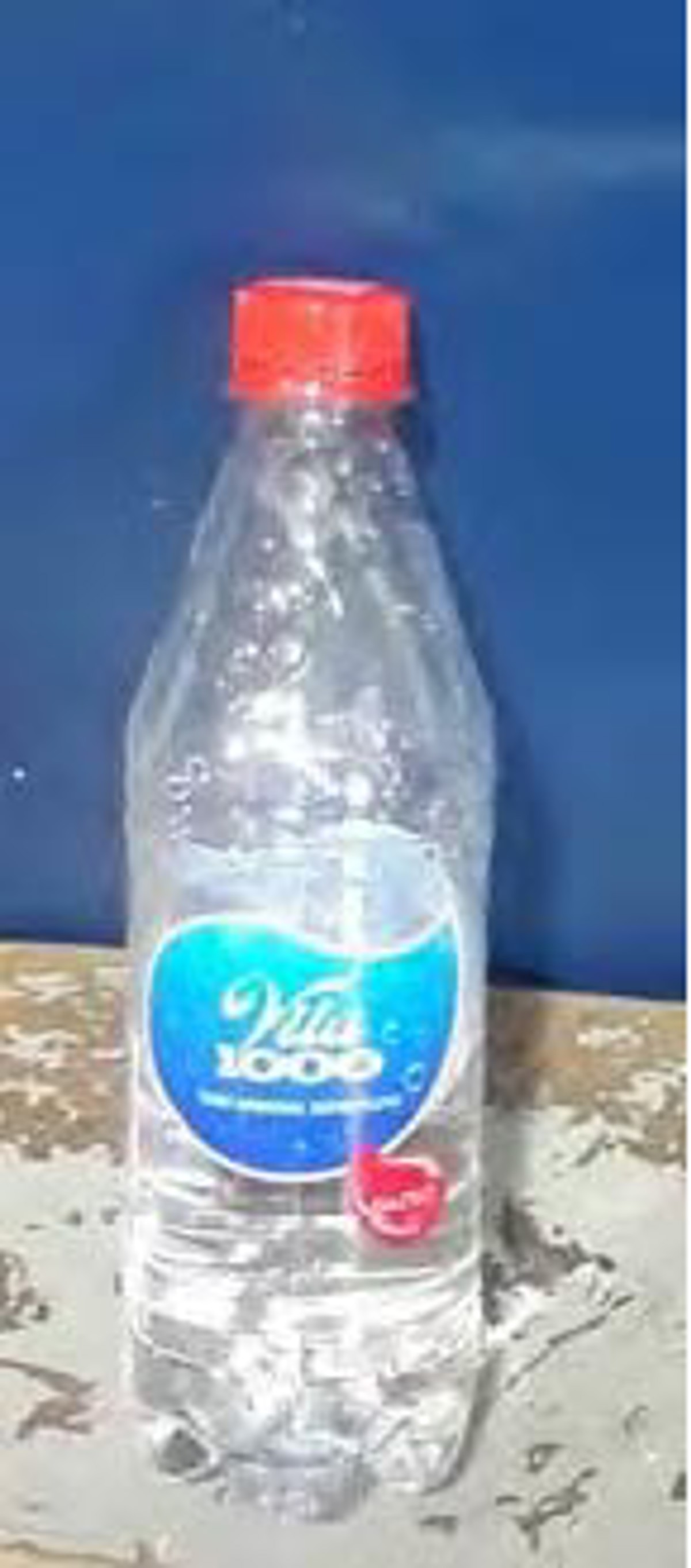Person accidentally drank hazardous substance
- Safety Flash
- Published on 5 February 2016
- Generated on 30 June 2025
- IMCA SF 04/16
- 3 minute read
Jump to:
A member has reported an incident in which someone inadvertently took a mouthful of a hazardous substance.
What happened?
The incident occurred when the Bosun was tasked with conducting ‘routine’ chipping and painting on deck. Feeling thirsty, he noticed two plastic bottles with drinking water labels on the table next to the accommodation entrance. He opened the cap of one the bottles and took a gulp – he immediately tasted solvent and spat out the liquid, before seeking first aid treatment.
Our member’s investigation revealed the following:
- There was a failure of control of substances hazardous to health.
- ‘Thinners’ had been decanted into incorrect storage, with insufficient warning labels.
- Flammable materials were stored incorrectly near to or in accommodation.
- Incorrect Safety Data Sheets (SDS) held on file, delaying immediate medical treatment.
There was unsafe use of incorrect storage containers, leaving maintenance materials (thinners) incorrectly stored in the accommodation;
- No verification was done on board of the vessel to ensure there was proper and suitable equipment available for transferring small amounts of paint and thinners.
- There was poor communication of safe storage and labelling requirements on the vessel.
- There was a lack of communication between parties, as an incorrect type of MSDS was initially offered to medics.
- There was no supervision, no oversight and a lack of control over storage and labelling applications of chemical substances and of the SDS register held on-board.
Our member took the following actions:
- The Bosun received first aid as per relevant SDS requirements. He was transferred ashore by helicopter for further medical examination.
- A safety stand down was carried out with the vessel crew to further outline the hazards created by inadequate storage, segregation and labelling of hazardous substances.
- The vessel Master was instructed to have a check made throughout the vessel to see if there were any chemical agents stored in unlabelled bottles – in breach with the accepted norms and requirements.
Our member drew the following lessons from the incident:
- All hazardous chemicals should be clearly labelled.
- Hazardous chemicals that are not in the manufacturer’s original container (working solutions, prepared for temporary use) should, at a minimum, be labelled with the contents. A suitable container should be used; . Drinking water bottles and/or other drinks in bottles and food should not be kept at the direct worksite, particularly not where chemicals are being used; . Chemical substances used on board should be accompanied at all times with easily accessible and easily identifiable MSDS.
IMCA Safety Flashes summarise key safety matters and incidents, allowing lessons to be more easily learnt for the benefit of the entire offshore industry.
The effectiveness of the IMCA Safety Flash system depends on the industry sharing information and so avoiding repeat incidents. Incidents are classified according to IOGP's Life Saving Rules.
All information is anonymised or sanitised, as appropriate, and warnings for graphic content included where possible.
IMCA makes every effort to ensure both the accuracy and reliability of the information shared, but is not be liable for any guidance and/or recommendation and/or statement herein contained.
The information contained in this document does not fulfil or replace any individual's or Member's legal, regulatory or other duties or obligations in respect of their operations. Individuals and Members remain solely responsible for the safe, lawful and proper conduct of their operations.
Share your safety incidents with IMCA online. Sign-up to receive Safety Flashes straight to your email.

